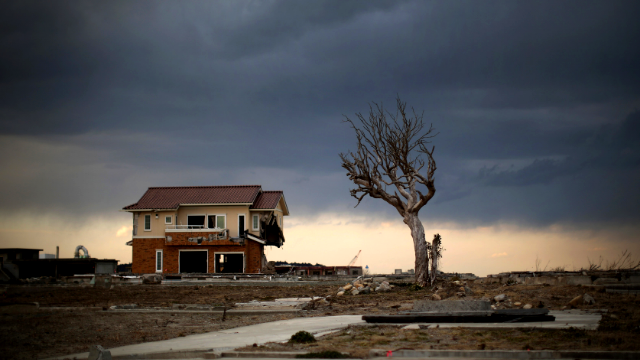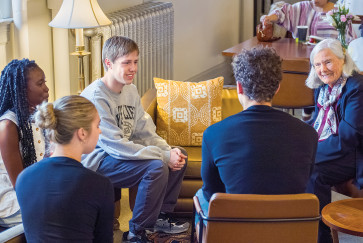A new report from Northwestern University’s Meridian 180 community is sounding the alarm that victims of nuclear disasters worldwide remain inadequately compensated and calls for a more inclusive process for approving nuclear projects and making nuclear energy decisions that gives ordinary citizens a seat at the table.
The report, “Nuclear Compensation: Lessons from Fukushima,” calls for a rigorous and inclusive process that transcends national borders and enables wiser decisions about nuclear projects and their many lingering consequences.
“We’re often inclined to think that nuclear disasters don’t happen very often, but that doesn’t take into view the damaging impact these disasters have in the long run on people, agriculture and anyone in the path of the nuclear fallout, sometimes beyond national borders,” said Hiro Miyazaki, Kay Davis Professor of Anthropology in the Weinberg College of Arts and Sciences at Northwestern and editor of the report.
The report is an outgrowth of more than five years of collaborative research on the Chernobyl, Three Mile Island and Fukushima nuclear disasters among scholars and experts across three continents. Its authors include Northwestern Associate Provost and Roberta Buffett Institute for Global Affairs Executive Director, Annelise Riles, the University of Toronto’s Mary Mitchell, Virginia Tech’s Sonja Schmid, Waseda University professor Takao Suami and Nagoya University professor Dai Yokomizo.
The report particularly emphasizes how compensation schemes for victims of nuclear accidents have not adequately addressed the plight of affected citizens.
“In the case of Fukushima, a large amount of money has been paid out to victims, but remains inadequate,” said Riles. “Many who suffered tremendous losses, but reside outside of the mandatory evacuation zone, have not been compensated. We need new, and much more inclusive nuclear disaster preparation processes involving careful deliberation over who deserves to be compensated in the wake of a nuclear disaster, and who should bear the costs.”
The report will be released during a virtual event co-sponsored by Northwestern and the Bulletin of the Atomic Scientists on March 9, featuring experts on nuclear issues, as well as victims of the 2011 Fukushima disaster.
The keynote address will be delivered by Allison Macfarlane, former chair of the U.S. Nuclear Regulatory Commission and director of the University of British Columbia School of Public Policy and Global Affairs.
The event will also include perspectives from Kazuhiro Yoshida, mayor of the town of Namie in Fukushima, as well as victims of Fukushima, including Masakazu Suzuki and Hidenori Konno, who are leaders of the plaintiffs in lawsuits against the Japanese government and Tokyo Electric Power Company (TEPCO).
Leading voices on nuclear issues and disaster response, including Bulletin of the Atomic Scientists president and CEO Rachel Bronson and University of Chicago professor Robert Rosner, will conclude the event with a panel discussion and live Q&A session.
“Ten years after Fukushima, it remains essential that we tackle, head on, the full costs and benefits of nuclear energy. Fukushima is a warning of what happens when we shirk that responsibility," Bronson said.


